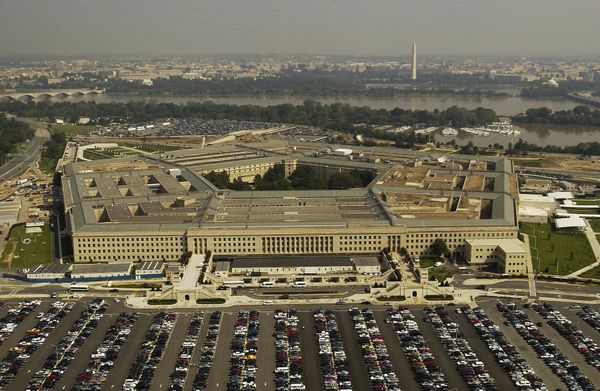Russia blamed for hacking Pentagon Joint Chiefs of Staff email system

Russia is being accused of launching a “sophisticated” attack against the Pentagon’s Joint Chiefs of Staff email system, according to a report published overnight be NBC News.
The attack is said to have taken place around July 25th, and according to a CBS News report – the Joint Staff’s unclassified email system remains offline over a week later as severe restrictions have been put in place, disrupting the work of some 4000 personnel.
The classified network used by the Joint Chiefs is said to not be affected.
If CBS News’s report is accurate, sources are claiming that the attack was a “new sophisticated intrusion” that could “only be mounted by a state actor”.
A typical attack would have seen workers targeted via an email campaign that either tricked them into launching a malicious attachment, or visiting a website, that installed further malware onto victim computers.
Running up-to-date anti-virus software and keeping patches for software such as Adobe Flash, Adobe PDF Reader, Java and Silverlight up-to-date can reduce the chances of such an attack succeeding – but there is always the possibility that the attackers might have used a zero-day vulnerability for which there is no patch yet available.
Once a PC is infected, the hackers might be able to remotely access files on the computer, as well as steal passwords, log keystrokes and even see what is happening on the victims’ screen or via their webcams.
Furthermore, if the malicious software is able to create a beachhead on a targeted computer, it can then use that as a springboard for further infections and deeper infiltration into the network.
According to a report in The Daily Beast, the attack is being linked to previous attacks that hit the White House and State Department last year, that saw some of President Obama’s unclassified emails compromised.
Those attacks have been connected to a cybercrime operation known as “Pawn Storm”, that has seen government, defence contractors and media agencies in the United States and Europe targeted with spear-phishing emails and poisoned watering-hole websites.
Just last month, Java received a critical security update designed to patch a vulnerability that the Pawn Storm hacking gang were exploiting in the wild.
We don’t know yet whether the attack against the Joint Chiefs of Staff email system involved the exploitation of a Java vulnerability that hadn’t yet been patched by network admins, but it certainly sounds as if it’s one possibility that needs to be investigated.
Some reports have reported that official (but unnamed) sources have linked the security breach to Russia, although no-one appears to be willing yet to suggest that the attack was sanctioned by the Russian government rather than the work of individual hackers.
I would certainly recommend exercising caution before pointing a finger of blame in any particular direction, or even to a particular country. Attributing internet attacks is, as we have mentioned before, notoriously difficult as it is possible for hackers to leapfrog across the internet, bouncing their attacks between multiple computers to disguise their true location.
tags
Author
Graham Cluley is an award-winning security blogger, researcher and public speaker. He has been working in the computer security industry since the early 1990s.
View all postsRight now Top posts
How to Protect Your WhatsApp from Hackers and Scammers – 8 Key Settings and Best Practices
April 03, 2025
Outpacing Cyberthreats: Bitdefender Together with Scuderia Ferrari HP in 2025
March 12, 2025
Streamjacking Scams On YouTube Leverage CS2 Pro Player Championships to Defraud Gamers
February 20, 2025
How to Identify and Protect Yourself from Gaming Laptop Scams
February 11, 2025
FOLLOW US ON SOCIAL MEDIA
You might also like
Bookmarks








